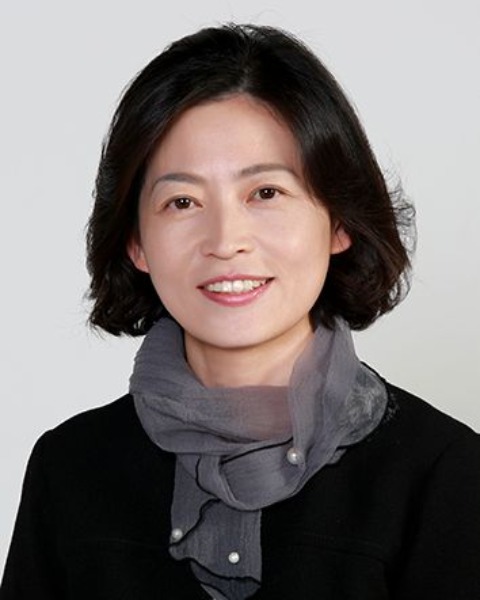Social Research, Policy, and Practice
Variations in Family and Community Resources Among Diverse Aging Immigrant Populations
-
FT
Fengyan Tang, PhD, FGSA (she/her/hers)
Professor
Social Work
University of Pittsburgh
Wexford, Pennsylvania, United States -
YJ
Yanping Jiang, PhD (she/her/hers)
Assistant Professor
Institute for Health, Health Care Policy, and Aging Research
Rutgers, The State University of New Jersey
New Brunswick, New Jersey, United States -
LL
Lydia Li, PhD (she/her/hers)
Professor
Social Work
University of Michigan
Ann Arbor, Michigan, United States -
FT
Fengyan Tang, PhD, FGSA (she/her/hers)
Professor
Social Work
University of Pittsburgh
Wexford, Pennsylvania, United States -

Yuri Jang, PHD, FGSA (she/her/hers)
Professor
Social Work
University of Southern California
Los Angeles, California, United States -
.jpg)
Nan Sook Park, PhD, FGSA (she/her/hers)
Professor
Social Work
University of South Florida
Tampa, Florida, United States -
.jpg)
Ke Li, PhD (she/her/hers)
postdoc
Social Work
University of New Hampshire
Durham, New Hampshire, United States -
SR
Sunshine Rote, PhD (she/her/hers)
Associate Professor and Associate Dean of Research
Kent School of Social Work and Family Science
University of Louisville
Louisville, Kentucky, United States
Chair(s)
Co-Chair(s)
Discussant(s)
Individual Symposium Abstract First Author(s)
Older immigrants rely significantly on family and community resources to address social isolation and related health issues. Yet, the formation and characteristics of these resources may vary within and across diverse aging contexts. Five studies in this symposium provide findings among Older Korean, Mexican, and Chinese Americans. Two studies present findings from the Study of Older Korean Americans (SOKA). Jang and colleagues examined the heterogeneity of family typology and its associations with psychological distress. Five family types were identified: close-knit, intimate but distant, detached, connected but dysfunctional, and dysfunctional. Park and colleagues identified five types of community: safe/integrated, safe/distant, moderate integration, marginal, and vulnerable. Findings showed that living in disadvantaged families and communities was associated with loneliness and mental distress. Using data from the Hispanic Established Epidemiologic Study of the Elderly Caregiver Supplement (H-EPESE CG), Rote examined the role of caregiver background, family and neighborhood support for depressive symptoms among Mexican American caregivers. Findings illustrated that Spanish-speaking caregivers showed a greater increase in mental distress, which was partially explained by lower caregiver resources. Two studies present findings from the Population Study of Chinese Elderly in Chicago (PINE). The objective and subjective aspects of social isolation had differential effects on mental and cognitive health, underscoring the importance of neighborhood resources and support system in buffering the negative health effects of social isolation. Collaboratively, these studies enhance our understanding of the variations in family and community roles across diverse aging contexts and suggest the needs for building resources to promote healthy aging.
Learning Objectives:
- Attendees will be able to summarize family and community types, caregiver needs, and health impacts of social isolation.
- Attendees will be able to identify diversity in support systems within an aging context.
- Attendees will be able to define vulnerable groups without sufficient family and community resources.
Presentations:
-
12:00 PM - 1:30 PM PSTSocial Disconnectedness, Perceived Loneliness, and Cognitive Functioning: The Role of Neighborhood Environment
Individual Symposium Abstract First Author: Fengyan Tang, PhD, FGSA (she/her/hers) – University of Pittsburgh
-
12:00 PM - 1:30 PM PSTFamily Typology and Mental Health in Older Korean Americans
Individual Symposium Abstract First Author: Yuri Jang, PHD, FGSA (she/her/hers) – University of Southern California
-
12:00 PM - 1:30 PM PSTA Perceived Community Typology in Older Korean Americans: Implications for Mental Health
Individual Symposium Abstract First Author: Nan Sook Park, PhD, FGSA (she/her/hers) – University of South Florida
-
12:00 PM - 1:30 PM PSTSocial Isolation and Depressive Symptoms of Older Chinese Americans: The Mediation Effect of Activity Engagement
Individual Symposium Abstract First Author: Ke Li, PhD (she/her/hers) – University of New Hampshire
-
12:00 PM - 1:30 PM PSTA Longitudinal Study of Mexican American Caregiver Depressive Symptoms Over Five Years
Individual Symposium Abstract First Author: Sunshine Rote, PhD (she/her/hers) – University of Louisville
